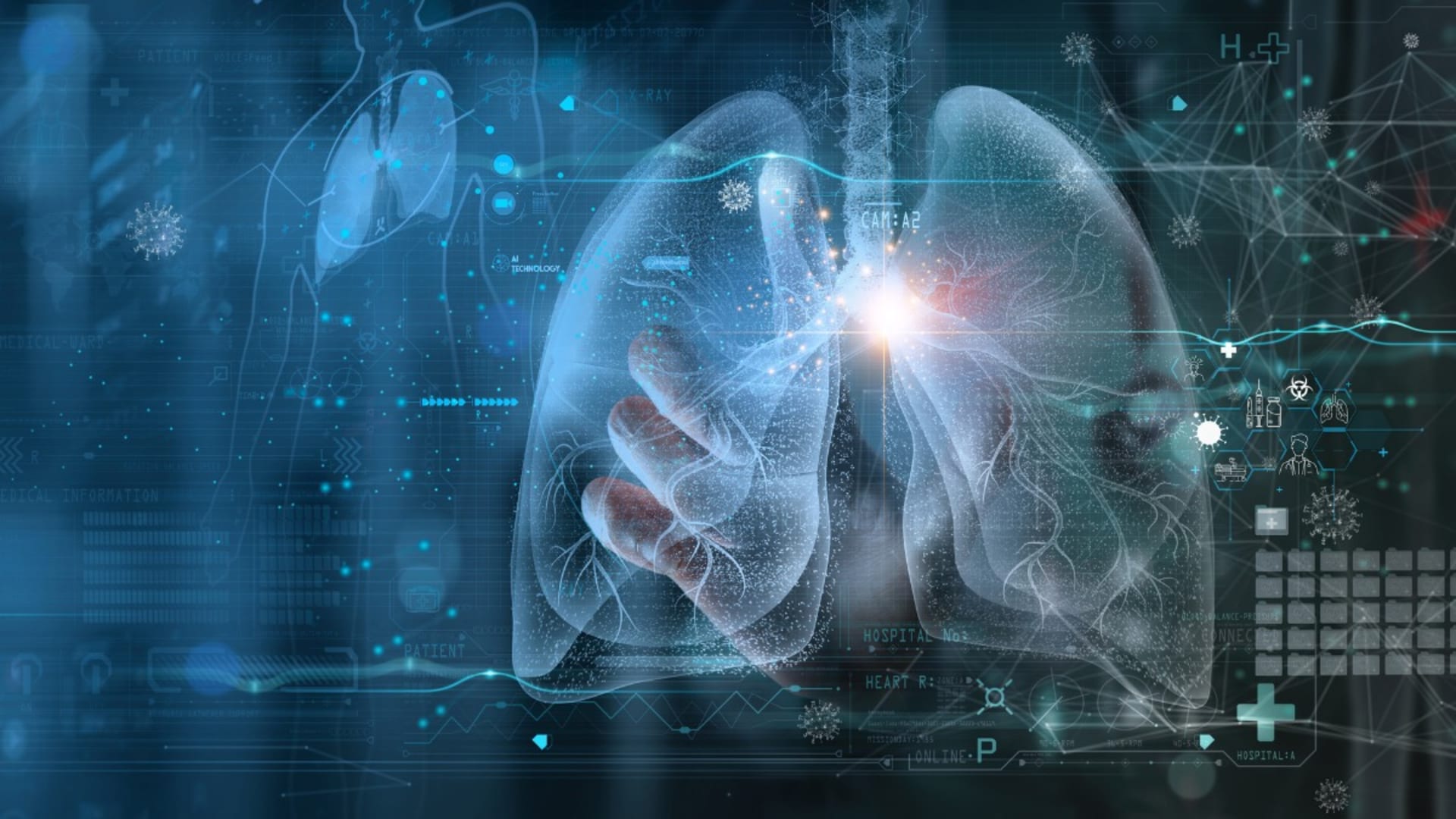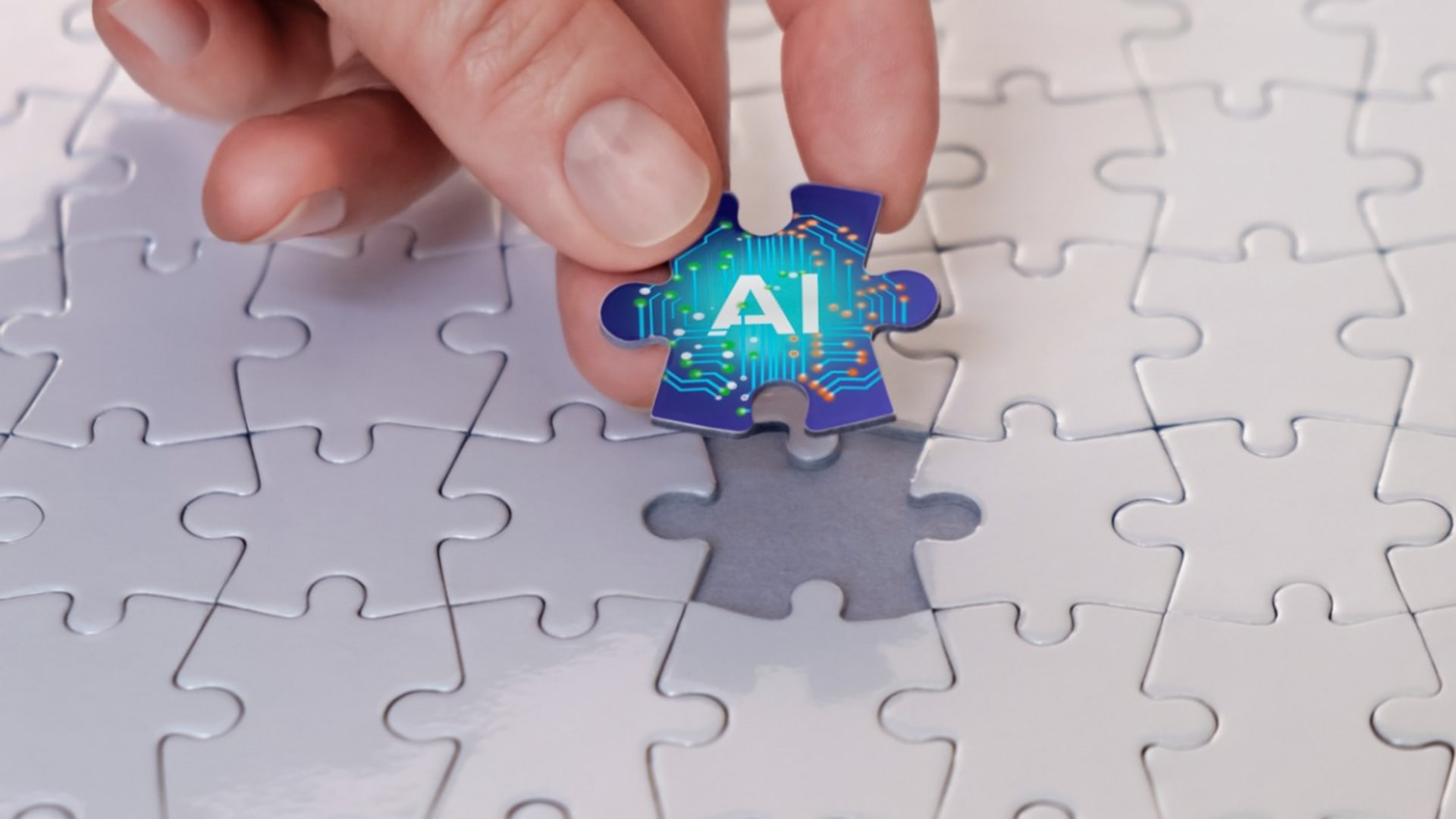Artificial intelligence transforms how patients receive medical care. Health organizations accumulate large healthcare data sets that only automated technologies have the ability to handle, and AI technologies assess this information, uncovering patterns and offering insights that humans be able to uncover on their own.
At its core, AI applications in AI aim to simplify the lives of doctors, patients, and everyone else in between by performing many tasks in less time and at lower costs. A 2021 survey showed that 45% of respondent healthcare organizations worldwide already use AI technology or had plans to use it before the end of the year.
AI benefits both patients and professionals by equipping healthcare organizations with algorithms that help them make better business and clinical decisions. Professionals then have the ability to make more accurate diagnoses, deliver personalized treatments, and reshape patient monitoring. Applying AI in the healthcare development makes systems faster and more efficient, improving healthcare delivery worldwide.
Understanding AI in Healthcare
Artificial Intelligence is a field that combines computer science and robust datasets to simulate human intelligence using machines and enable problem-solving. These systems analyze large amounts of data to search for correlations and patterns and make predictions about the future.
AI technologies, and machine learning algorithms use data and creates rules for how to transform it into actionable information. Then, it selects the right algorithms to achieve certain outcomes. This technology continuously fine-tunes its algorithms and even has the capability to generate new images, text, music, and ideas.
There are many types of AI technology used today across many industries and business types. Some of this tech includes:
- Machine Learning: Machine learning is the automation of predictive analysis to encourage machines to act without programming. This tech utilizes three types of algorithms: supervised learning, unsupervised learning, and reinforcement learning.
- Natural Language Processing: NLP is the processing of human language by a computer program based on machine learning. It covers text translation, speech recognition, and sentiment analysis.
- Robotics: Robotics includes the creation and manufacturing of robots capable of consistently performing tasks that are difficult for humans. In combination with machine learning, researchers build robots capable of interacting in social settings.
Application of AI in Healthcare
Artificial intelligence in healthcare involves using a range of AI-based tools to improve the patient experience. By analyzing vast amounts of clinical data and patient information, AI creates more accurate diagnoses and personalized treatment plans and makes predictions regarding different outcomes.
AI healthcare tools increase the speed at which the healthcare industry moves by analyzing a wide variety of medical information using High-Performance Computing (HPC). Because these solutions are mainly cloud-based, their capabilities aren’t limited to a single place either. This enables connections among several networks and locations.
Machine learning is probably the most common example of artificial intelligence in healthcare. Using it, organizations quickly process large amounts of clinical information, identify patterns and correlations, and predict medical outcomes. This technology also helps medical organizations improve diagnoses, customize patient treatment plans, uncover correlations between diseases, and detect changes in vital signs. It’s also possible to predict the level of success of different treatment procedures.
Natural language processing also helps improve patient care. It predicts potential health risks, diagnoses illness by extracting data from patient records, streamlines clinical processes, and offers other personalized services.
A great example of artificial intelligence in healthcare is the IBM Watson system. It understands natural languages, answers questions, and forms hypotheses after analyzing large amounts of data. Other useful applications include AI-based virtual health assistants and chatbots. These help patients find medical information, schedule appointments, and complete other administrative processes online.
Benefits of Artificial Intelligence in Healthcare
Both healthcare providers and patients benefit from artificial intelligence in the field of health and medical care for many reasons.
Improved Accuracy
Artificial intelligence in healthcare has the ability to analyze clinical studies, medical records, and genetic information with much more accuracy than any human could. AI-based tools mine accurate, relevant, and evidence-based information that can help medical professionals come to more accurate diagnoses. The right AI-based algorithms even help predict and diagnose diseases with minimal error threats. A 2020-2021 study showed that causal machine learning models are not only more accurate than previous AI-based symptom checkers but, in many cases, can now exceed the diagnosis accuracy of human doctors.
Speed and Efficiency
Another benefit of artificial intelligence in the healthcare field involves its speed and efficiency. While examining data patterns, AI-based tools help healthcare organizations make the most of their data and resources. This helps increase efficiency, improve performance, and accelerate operation workflows and processes. AI helps save time in many different ways, from minimizing waiting times to offering quick diagnoses that prevent conditions from worsening.
Cost-Effectiveness
There are many ways artificial intelligence in healthcare helps cut costs. For example, it lowers the burden of administrative tasks, reduces medical errors, and completes tasks more quickly. All of this has an associated cost which AI mitigates. As this technology continues to learn and improve its accuracy and efficiency, its costs also continue to diminish.
Current Trends in AI Healthcare
Although a fairly new technology in the world of healthcare, AI has already become a staple in the community – for good reason.
AI-Powered Devices
AI-powered devices use deep learning and neural networks to fulfill human tasks in a variety of roles, including predicting and identifying diseases, classifying data, analyzing disease outbreaks, optimizing medical therapy, and offering diagnosis support.
Medical devices currently use deep learning techniques using neural networks because of their ability to mimic the human brain when it comes to recognizing patterns. Once exposed to data, these devices use human-like learning patterns without being programmed.
A great example of this is Medtronic, a company that leverages the power of artificial intelligence in healthcare by creating AI-powered devices, designed and launched an app called Sugar. IQ. Using AI technology, this app aims to help diabetics manage their condition for a better quality of life. It uncovered behaviors associated with glucose patterns, delivered personalized messages, and helped users understand the impact of certain foods. Sugar.IQ continuously monitors blood glucose levels by analyzing large amounts of data generated from Medtronic’s glucose sensors and insulin pumps.
AI in Telemedicine
Telemedicine involves delivering healthcare services using remote digital communication technologies. AI improves access to healthcare, especially in underserved, remote communities.
Applying AI to telemedicine contributes to many applications such as chronic conditions management, mental health service provision, and primary care delivery. Some specific use cases include:
- Telemonitoring: Monitoring patients remotely involves checking vital signs, providing early detection, and identifying which patients are at risk of certain conditions.
- Diagnosis: By pairing telemedicine with AI, providers gain the ability to diagnose patients and provide them with recommendations based on their existing medical records and current diagnoses.
- Treatment plans: AI has the ability to develop custom treatment plans for patients based on their individual needs, medical history, preferences, treatment type, and location.
- Patient engagement: Patients benefit from interacting with chatbots and virtual assistants to help them remember appointments and follow-up care, and they assist with commonly asked questions.
- Chronic disease management: By providing patients with helpful reminders and feedback, AI helps support the management of hypertension, heart disease, and diabetes.
AI in Genomics
From sequencing the DNA of critical-care patients with rare diseases to conducting population-scale genetics research, genomics offers a variety of applications and use cases. However, this technology requires significant computational power and data science to interpret the results. That’s part of why AI plays such an important role in genomics.
AI tools analyze large amounts of genomic data to assist with discoveries and personalized medicine. A few applications of AI in genomics include:
- Genomic data analysis: Compared to more traditional routes, AI-based methods interpret genomic data with higher efficiency and accuracy overall.
- Custom medicine: By interpreting genomic data, healthcare professionals identify specific genetic mutations associated with diseases. This then gives healthcare professionals the opportunity to implement more effective personalized treatments.
- Clinical genomics: Current AI-powered clinical genomic applications include genomic diagnostics, prognostics, and therapeutics.
AI in Robotic Surgery
Surgical tasks require precision and repetitions, which can be challenging for surgeons. Advances in AI and collaborative tools allow for the creation of surgical robots that assist surgeons in a number of duties.
These robots precisely control their movement trajectory, speed, and depth. This is especially helpful during procedures that require repetitive movements that might lead to fatigue. Surgical robots can also remain completely still for as long as needed. The ability to repeat exact motions is useful, for instance, in hair transplant surgeries.
AI in robotic surgery also identifies patterns in procedures using medical images, helping improve best practices and control accuracy. This helps improve best practices and control accuracy. AI-based surgical robots provide magnified and 3D views during procedures not normally available to the human eye. Eye-tracking camera control is another feature of this technology, enabling surgeons to control the camera by simply moving their eyes.
This technology also reduces average waiting periods for procedures, mitigates risk, and attenuates complications and potential side effects. At the same time, AI offers surgeons access to real-time information regarding a patient’s current condition, prompting intelligent decision-making before, during, and after procedures.
AI in Drug Discovery
Traditional drug discovery is a time-consuming process that involves many stages, from target identification to clinical trials. Artificial intelligence in healthcare allows for the creation of tools that revolutionized each step of the drug discovery process, increasing its speed and reducing costs.
- Target identification: AI analyzes disease associations, patents, publications, clinical trials, and research grants to better understand the mechanisms of diseases. This way, it can identify novel proteins or genes to target with new drugs.
- Molecular simulation: High-fidelity molecular simulations reduce the need for physical testing of drug compounds and overcome the costs of traditional chemistry methods.
- Drug properties prediction: Instead of testing drug candidates, AI allows the prediction of toxicity, bioactivity, and other physiochemical characteristics of molecules.
- De novo drug design: AI systems generate promising, unique drug molecules from scratch.
- Candidate drug prioritization: After identifying a group of promising compounds, AI rank and prioritizes them for further testing.
AI, Electronic Health Records & Patient Experience
Patient experience is the range of interactions that patients have with the healthcare system. This includes the care they receive from health plans, doctors, nurses, hospital staff, physicians, and other healthcare facilities. It also involves receiving timely appointments, easy access to information, and good communication. Patient experience is an integral component of healthcare quality. Better experiences correlate with better patient outcomes. This translates to improved health and customer experience.
AI has the ability to help improve these outcomes. It can automate personalized care and communication that often doesn’t occur in busy hospital settings. It also offers patients access to custom instructions, educational videos, and goals.
Personalized and constant communication helps increase in-network loyalty. Patient response rates often improve with AI systems, optimizing follow-up appointments based on diagnosis, age, and personal preferences. By automating certain tasks, AI could also free up staff to physically care for patients. Using AI-based devices, such as call buttons, could help redirect routine patient requests to non-nursing staff members, allowing doctors and nurses to focus on higher-level tasks.
Challenges and Ethical Considerations
Although this technology is groundbreaking and increasingly helpful, the field of healthcare includes many stringent requirements, security and privacy requirements, and ethical considerations when it comes to AI.
Data Security and Privacy
There are a few challenges around data security and privacy when applying artificial intelligence in healthcare. AI systems collect large amounts of personal health data that they must then handle correctly. Healthcare organizations need to implement security measures to protect sensitive data and proper infrastructure to properly store and organize it. AI also needs the right algorithms to make meaningful sense of the medical data pool.
Failing to do this leaves medical information vulnerable to cyberattacks and other threats, potentially allowing third parties to exploit sensitive patient data for malicious purposes. Implementing the wrong algorithms could also lead to biased decision-making, even if unintentionally.
Luckily, there are a few standard and rigorous security protocols in place to protect the use of artificial intelligence in healthcare. Compliance standards like HIPAA determine how AI accesses and uses patient information, as well as inform healthcare organizations on how to use it and keep it private.
Ethical Considerations
Fine-tuned codes of ethics are also extremely important to guide the management of big medical data and AI. Ethical considerations are as relevant as ensuring proper infrastructure, tech stack, expertise, and security measures. Major ethical issues with using artificial intelligence in healthcare involve privacy and surveillance, bias, discrimination, and the role of human judgment.
Mistakes in healthcare could have immeasurable consequences for patients, and unfortunately, there’s still a long way to go to obtain well-defined regulations regarding the role AI plays in healthcare. Other important ethical issues revolve around healthcare records ownership and patient history. Complications include determining who can share them and when, as well as if this process requires consent.
Future of AI for Medical Professionals
The future of artificial intelligence in healthcare is full of possibilities for innovation. In today’s world, where people are more connected than ever, AI in healthcare is an invaluable asset, reshaping how health organizations deliver patient care.
There is still a sense of mistrust when it comes to using AI in certain environments. However, considering how it’s so widespread across industries, organizations that refuse to implement it will lag behind their peers. Machine learning and AI will continue to play a big role in making predictions. Organizations can use this technology to predict emergency department volumes, which treatments might be more effective, and more.
Potentially, the greatest challenge for artificial intelligence in healthcare is ensuring its adoption and application in daily clinical practice. The most successful healthcare organizations will be the ones using AI technology to fundamentally rethink and reimagine their processes.
Conclusion
Artificial intelligence is a groundbreaking technology applicable to many different industries and businesses. In healthcare, AI offers incredible benefits, such as improved accuracy in treatments and diagnoses, faster processes, more cost-effective treatments, and so much more. However, AI is still a fairly new technology, and the industry is only starting to find the true range of its applicability, along with how to deal with the challenges and ethical considerations associated with it. An AI development company can play a crucial role in navigating these complexities, ensuring that AI solutions are both effective and ethically sound.
If you enjoyed this, be sure to check out our other AI articles.







